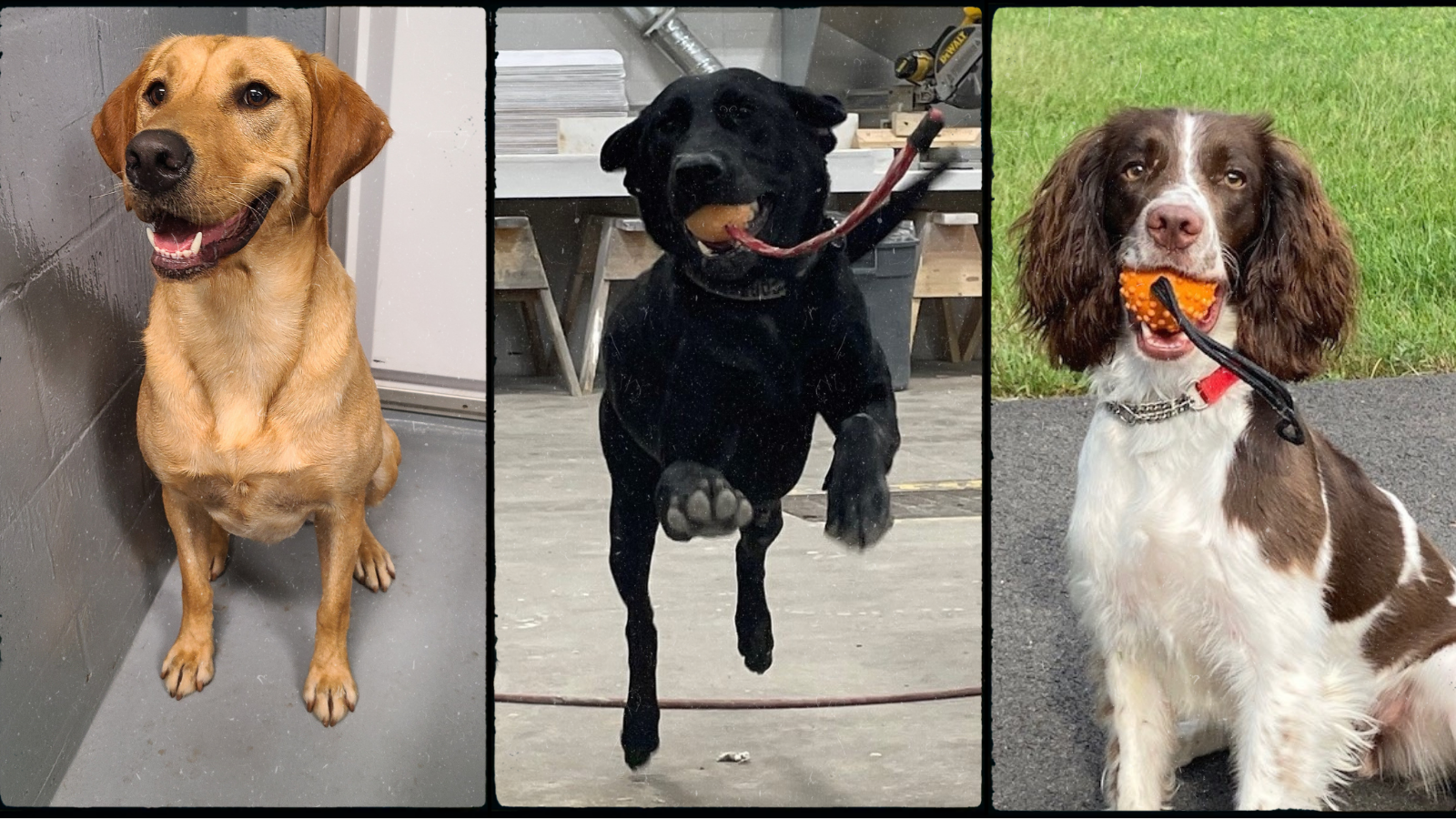As the substance abuse crisis continues to rage across Canada, correctional institutions across the country are feeling the strain.
According to a 2020 report by Dalhousie University, opioid-related deaths inside correctional facilities are on a steady incline. In 2017 alone, there were 70 overdoses inside Canadian prisons. A 2016 report by CMAJ Open found that post-release, a prisoner's risk of overdose is more than 50 times higher than the general population. This is why it's critical to keep illegal substances from entering and circulating our prison systems in the first place.
One of the ways Correctional Service of Canada (CSC) has been combating this ongoing health emergency has been through their highly successful Detector Dog Program. While these canine drug busters may be 'pawsitively' adorable, they play an important role in CSC's wider National Drug Strategy.
"[The program] actively contributes to the safety and security of our institutions by preventing the introduction, possession and trafficking of drugs through deterrence, searching and detection," says Marie Pier Lécuyer, Senior Media Relations Officer with CSC. "It helps prevent the flow of illegal drugs through principal entrances of institutions, enhances surveillance in visiting areas and the admissions and discharge area and provides an enhanced search capability within institutions including accommodation areas, yards/perimeters and common areas."
Each detector dog is assigned a handler, a specially trained correctional officer responsible for conducting institutional searches and any other situations that require the handling of a detector dog. With the combined skill of dog and handler, these dynamic duos are able to assist frontline staff in detecting drugs and even firearms inside correctional facilities.
Lécuyer says here are currently 95 detector dog teams in place across Canada. "Each team can quickly screen inmates and visitors in the least intrusive way possible," she says. "We also have a robust preventive security and intelligence capacity aimed at monitoring and investigating inmate activity, potential drug-smuggling attempts, and seizure of illicit substances."
CSC uses a range of tools to prevent the flow of drugs into their institutions. These include searches of offenders, visitors, buildings and cells using non-intrusive search tools like detector dogs and ion scanners. "We have zero tolerance for drug trafficking in institutions," Lécuyer says, "and preventing and reducing the number of contraband items and illicit drugs in correctional institutions is an ongoing priority for us."
Let's get to know a few of these 'pawsome' detector dogs:
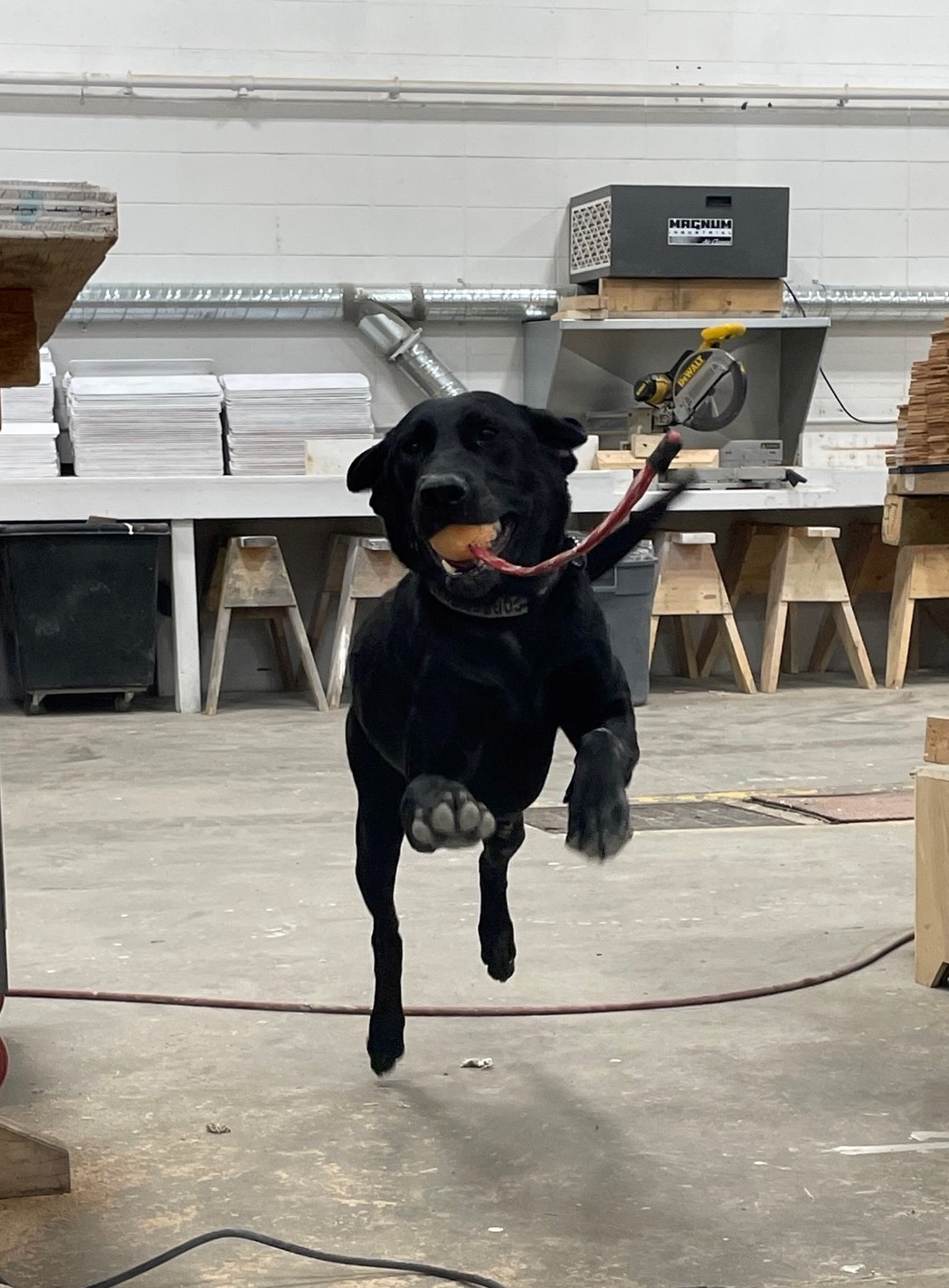
Junior is two years old and has been working for CSC since August 2021. He is a highly motivated Labrador Retriever, who has a passion for searching. Often during searches you can find Junior using anything and everything as an obstacle to climb for his enjoyment, he is a fearless dog who makes every search fun. He’s known by his colleges as having the silliest personality. He works as hard as he can for his favorite reward- a good game of tug of war.
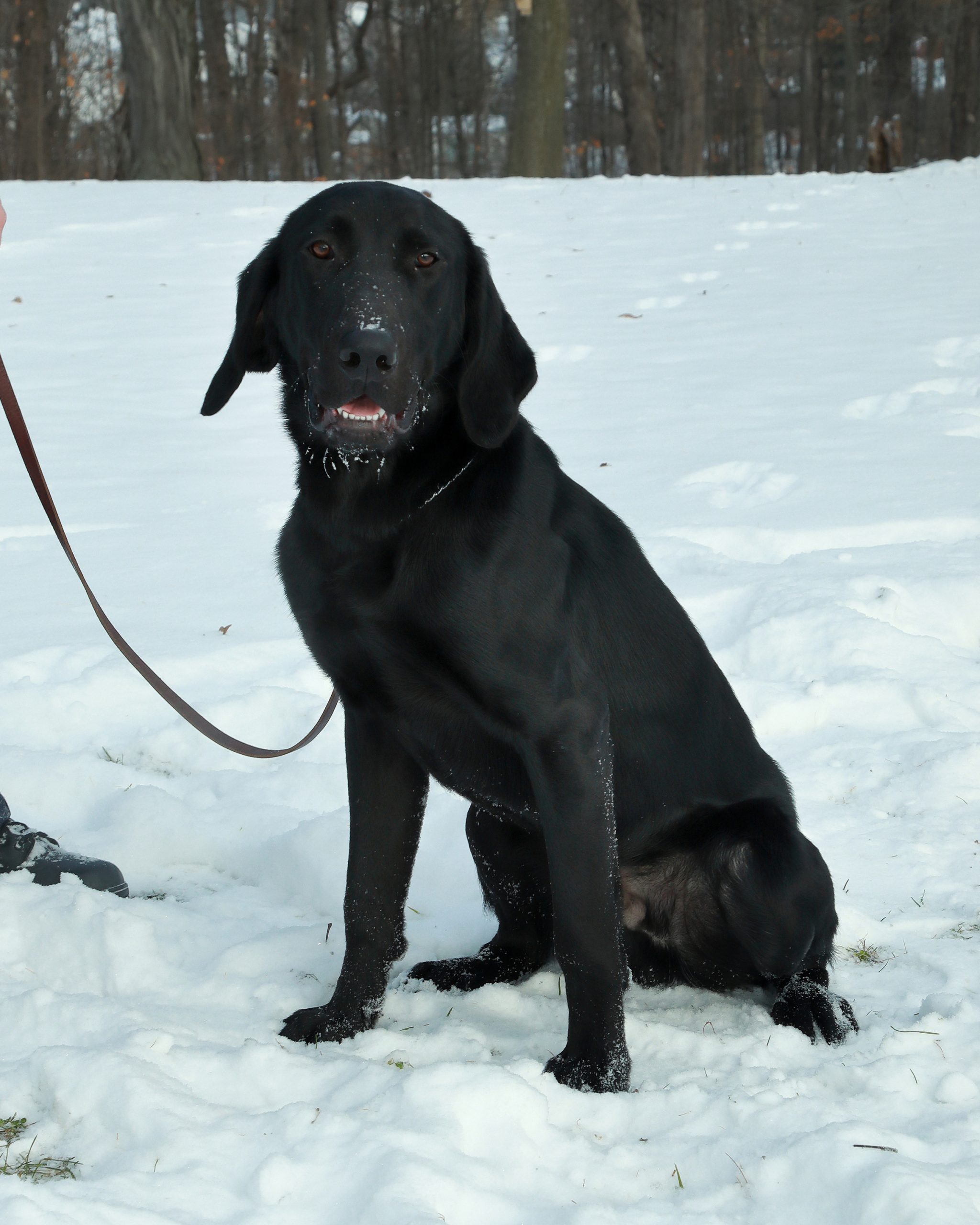
Dexter is 1 year old and has been working for CSC since December 2021.

Maple is two years old and has been working for CSC since May 2021. She is a 32 pound bundle of energy. She will not slow down long enough even for her handler to pet her, except when she finds what she is looking for, at which point she nearly explodes as she waits for her ball! She is tiny but appears to be “spring loaded”, jumping to check anything she can reach, and hopping into her handlers arms for help to put her nose on anything too high for her. Maple has absolutely found her calling, as life as a pet would not meet her exercise and excitement requirements. She is new to her job but has already been very successful in sniffing out contraband in the region. Maple is also very popular everywhere she goes, due to the obvious cuteness overload!
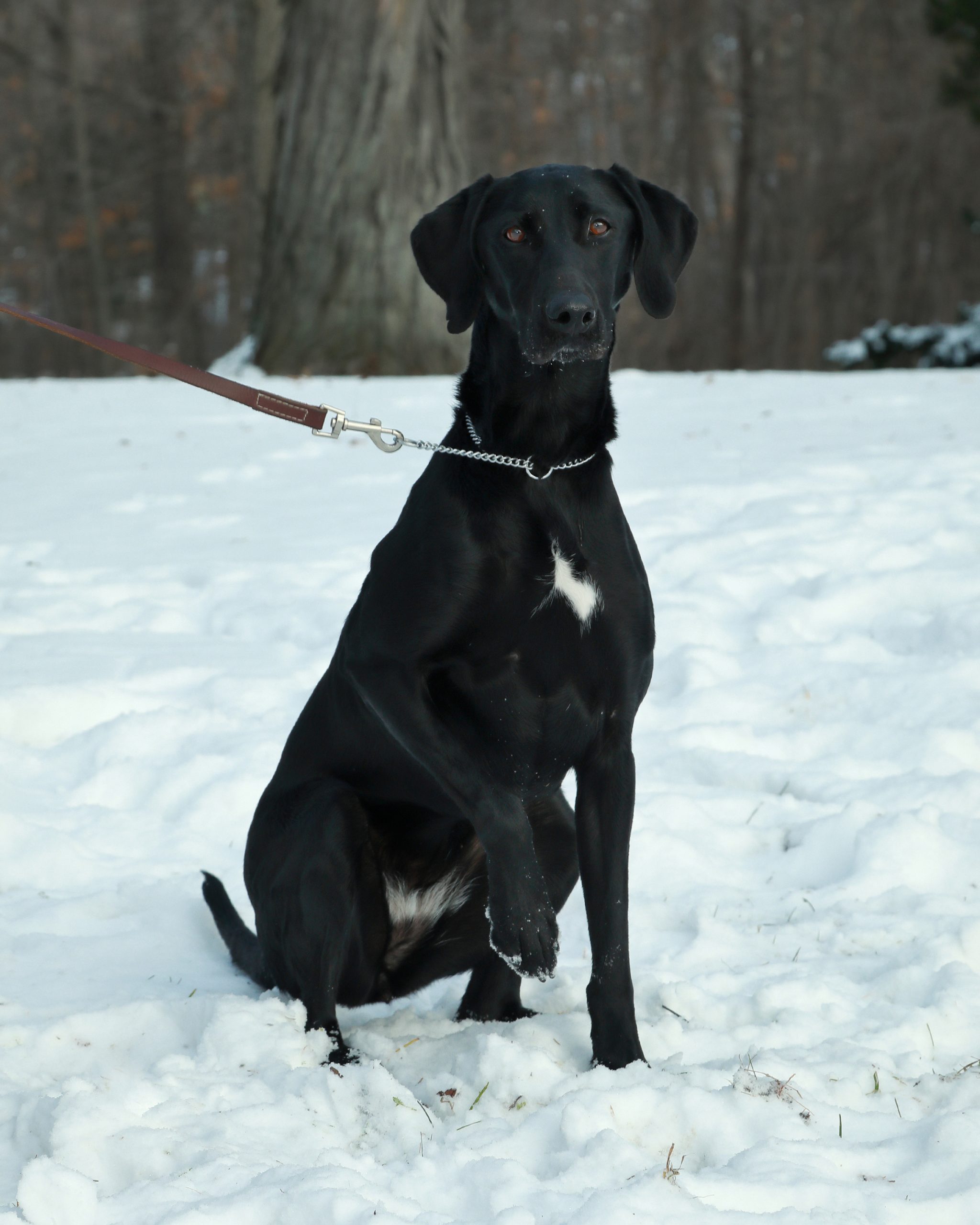
Knox is 2 years old and has been working for CSC since December 2021.
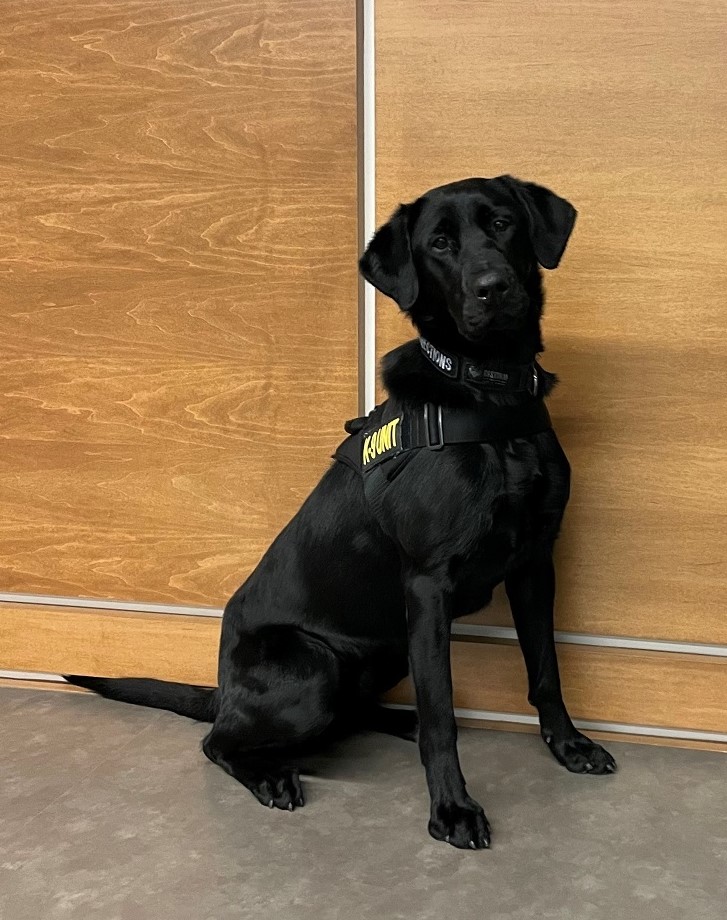
Nova is one year old and has been working for CSC since October 2021. Nova is a rescue dog from Eastern Canada. She loves to search. She doesn’t love attention but occasionally she will put her nose as close to her handlers face as possible and stay there for a few minutes. She won’t lick or smell, maybe its her way of saying thank you CSC for giving me an important job.

Mika is 1 year old and has been working for CSC since December 2021.

Tcherno is two years old and has been working for CSC since August 2021. Tcherno is a high energy, hard working detector dog that absolutely loves to search! She loves searching inside the walls of the prison looking for contraband and when she indicates on a trained odor – she goes wild! Tcherno loves being rewarded with her ball and really enjoys retrieving it. Fetch is her favorite game! She is a sweet dog, but when she is searching , she is focused, determined and ready to detect drugs! She is a crucial part of the introduction to contraband and is one of the best partners a handler could have!
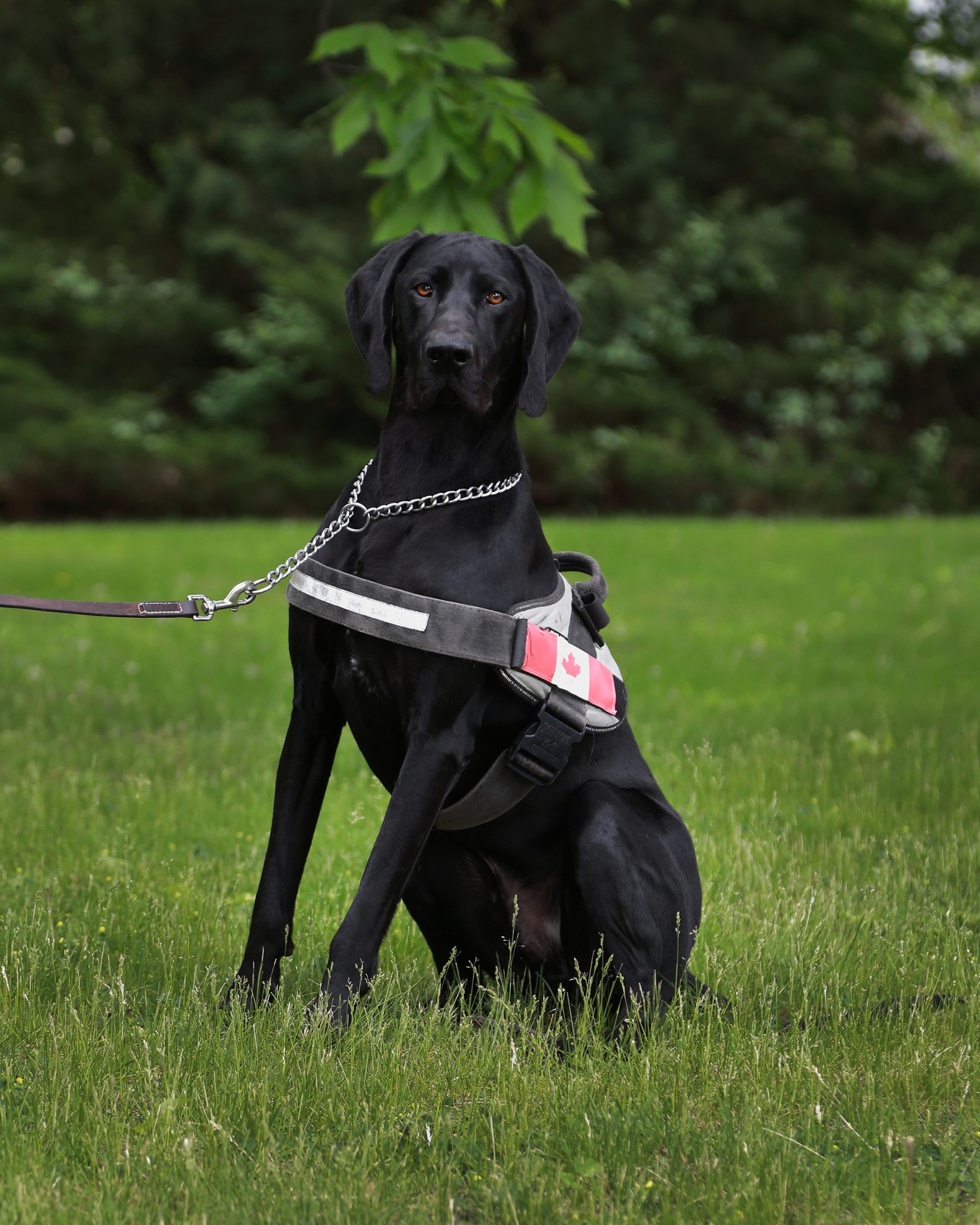
Cooper is 2 years old and has been working for CSC since May 2021.
For more information on CSC’s Detector Dog Program, please consult Commissioner’s Directive 566-13 – Detector Dog Program.
******
With files from Correctional Service of Canada.

Victoria St. Michael is a multimedia content creator with experience producing high-quality print and digital content. Victoria graduated with an Honours Degree in Digital Journalism from the University of Ottawa and a Journalism Diploma from Algonquin College, and has bylines in publications across North America. With an avid interest in humanitarian and global issues, she hopes to use her unique voice to help build a well-informed, forward thinking and progressive Canada.


